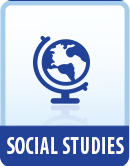|
This section contains 645 words (approx. 3 pages at 300 words per page) |

|
Émile Littré, the French linguist and positivist philosopher, was born in Paris. From an early age Littré was interested in medicine and languages; and he received training in both. He is now best known for his Dictionnaire de la langue française (4 vols., Paris, 1863–1872) and his edition (with Charles Robin) of Pierre Hubert Nysten's Dictionnaire de médecine, de chirurgie, de pharmacie, de l'art vétérinaire et des sciences qui s'y rapportent (Paris, 1885). He was also prominent in radical political journalism (in Le national of Armand Carrel) and in freethinking circles. He became a member of the Académie des Inscriptions in 1838 and of the Académie Française in 1871, the latter over the violent objections of Bishop Dupanloup of Orléans. Littré was elected a deputy in 1871 and a senator for life in 1875.
These...
|
This section contains 645 words (approx. 3 pages at 300 words per page) |

|


